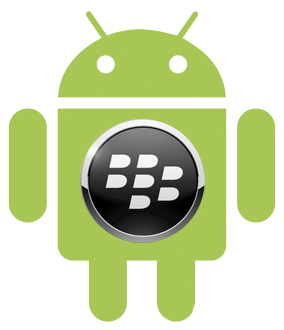So I think that it comes to no surprise that after all open letters sent in about RIM and their poor processes and the device itself that there are rumors (or discussions) of someone buying RIM. Remember RIM is the biggest enterprise player around. I found this article over at Crackberry.com and it discusses the top 10 reasons that Google should buy RIM. Now here at PPCGeeks I want to discuss what it would mean to those companies…Is it worth it?
Here is a direct copy of the list from Crackberry.com Top 10 reasons why Google should buy RIM.
10 Reasons Why Google Will Buy Research In Motion
In no particular order….
1. QNX. QNX, the foundation of the new BlackBerry Tablet OS and future QNX-based BlackBerry “superphones” is literally a drop-in replacement for the Android’s Linux Kernel. Thanks to its POSIX compliance, it would literally take just weeks for Android to make this conversion, and they would immediately enjoy the benefits of QNX on the Android platform: improved stability (microkernel vs. monolithic kernel), better security (notice how the PlayBook hasn’t been rooted), ease of rolling out new hardware (QNX is already running on 32 cores) and more. Android has its vulnerabilities. Android with a QNX kernel is compelling.
2. Canada is nice, eh. Google already has offices in Kitchener (next to Waterloo), Ontario, where RIM’s headquarters and main talent pool are located. It could be that Google has been thinking ahead.
3. Java. Java is at the heart of the Android, and Research In Motion has a lot of smart people who know Java.
4. Mobile patents. One of Google/Android’s biggest weaknesses currently are their lack of patents in the mobile space. Google is starting to get inundated with lawsuits, and unfortunately, these lawsuits don’t just get directed at Google but also the companies that are using the Android operating system on their devices. Google NEEDS to build up their mobile patent defenses. Buying RIM not only would give Google RIM’s patents, it would also get Google into the recent Nortel patent acquisition that Google was not part of the winning bid on.
Google lost the bid on Nortel patents to a consortium of companies including Apple, Microsoft and RIM. It’s pretty clear that this consortium was done as a block again Google to stave off Android growth and prevent Google from winning the bid. However, looking at Google’s bids for the patents, which were based on pi (3.141519 billion) and other universal constants like the distance between the Earth and the Sun, it’s like Google wasn’t even taking the bid seriously. And why would you? If you’re Google and you’re about to buy RIM, who’s stake in the Nortel bid was $770 million, you’re getting your piece of over 6,000 Nortel patents for a $4 billion dollar discount. Google actually buying these Nortel patents at over $4.5 billion would have been a stupid move if they’re planning on buying RIM in the near-ish future. A RIM acquisition has effectively been discounted by over $3.5 billion.
5. T.A.T. Google has worked extensively with The Astonishing Tribe in the past. TAT did the UI for the original version of Android on the T-Mobile G1. Google knows TAT. Google likes TAT. RIM owns TAT. Google buys RIM and now owns TAT.
6. Enterprise. Android becomes viable for enterprise. Currently when you mention Android in enterprise, most people just laugh. The security isn’t there, nor is there a great way to manage it. RIM already announced they’re working on cross-platform BES support at BlackBerry World this year. In a world where Google owns RIM and there’s a QNX kernel on Android (see point #1), Android in enterprise is no longer laughable, it’s awesome.
7. Carrier relationships. I don’t think anybody would argue with the fact RIM has done a great job over the years at expanding its footprint around the globe. Google is obviously doing a great job at this too with Android, and Google would only further benefit from RIM’s existing carrier relationships and RIM’s existing base of people who currently work in these roles.
8. Proof of concept complete / Commitment to Android. RIM has already announced support for Android apps on the BlackBerry PlayBook (and future QNX-based BlackBerry Smartphones). I believe this was done without Google’s blessing, but it shows that Android on BlackBerry is already doable. It also shows RIM is already going to rely on Android for “app tonnage,” which could be seen as a turn off to other potential RIM suitors.
9. Reduce fragmentation. Google has made it clear that they want to reduce the fragmentation in the Android ecosystem, and BlackBerry running Android apps on Google only complicates this issue further. Because RIM is having developers resubmit their Android-built apps to App World (effectively making them BlackBerry apps), there’s little Google can currently do to prevent this. Google buying RIM allows this to be addressed.
10. Assuming Google wants to, they could now own the end-to-end experience. Google currently builds no hardware. Instead, they give away the operating system to companies like HTC, Samsung, LG, etc. who build the hardware. Google may not want to change this approach, but if they wanted to, they could actually own the hardware and software stack and build their own hardware via a RIM acquisition.
Bonus Reason 11. Google’s Eric Schmidt was a CrackBerry addict. Seriously, even in 2009 as Android was emerging from it’s shell, Eric Schmidt was rocking a BlackBerry (remember when he got caught on camera using it). I’m not saying everybody at Google likes BlackBerry, but I’m sure they get BlackBerry.
Source: Crackberry

